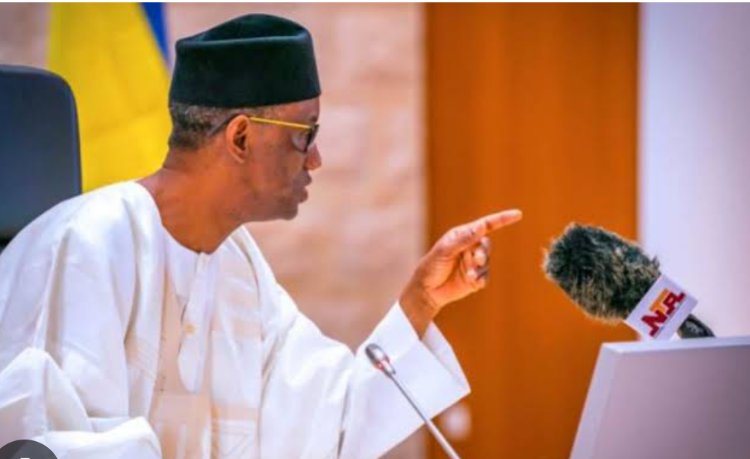Urhobos Writes NSA Ribadu: Confirms Ijaws to Be Part of Warri South LGA

Urges INEC to Complete Exercise Based on Field Data Not Obsolete Voters Register
WARRI, NIGERIA — In a resounding display of statesmanship and ethnic solidarity, distinguished Urhobo leaders from Warri South Local Government Area have penned an open letter to the National Security Adviser, Mallam Nuhu Ribadu, firmly disowning divisive claims made by Chief Westham Adehor and Hon. Mark Ikpuri. The letter, which has sparked intense national discourse, decisively affirms the historical and constitutional belonging of the Ijaw ethnic group within Warri South LGA.
The historic open letter to the NSA,
Signed by four prominent sons of the soil of the Urhobos of Warri, Olorogun Victor Okumagba, JP, Chief John Eranvor, Chief Isaac Emifoniye, and Comrade Stanley Agbosa represents a significant moment of political maturity and inter-ethnic cooperation. It unequivocally states that neither Adehor nor Ikpuri holds any mandate or the locus standi to speak for the Urhobo people, dismissing their comments as unrepresentative and potentially destabilizing.
The Urhobos of Warri leaders stressed that the Ijaws are not just residents but indigenous contributors to the development and identity of Warri South. “We write with a deep sense of responsibility in the interest of justice, peace, and sustainable coexistence,” the letter stated, describing the controversial remarks by Adehor and Ikpuri as “misleading and divisive.”
In a direct rebuttal, the leaders cited long-standing Ijaw settlements such as Ogbe-Ijoh, recognized as the headquarters of Warri South-West and bordering Warri South, as proof of the Ijaw people's entrenched presence. They noted that these communities predate current political boundaries and have coexisted harmoniously with other ethnic groups, particularly Urhobos and Itsekiris, for generations.
Commendation for INEC and Warning Against Manipulation
The letter further praised the Independent National Electoral Commission (INEC) for its ongoing constituency delineation exercise, which follows a Supreme Court directive. The Urhobos of Warri leaders emphasized that only field-based, verifiable data—not outdated or manipulated voter registers—should guide INEC’s work.
They warned against political actors attempting to use ethnic sentiment or misinformation to derail this democratic process. “Any attempt to skew the facts or deny any ethnic group their rightful recognition will amount to a grave injustice and could incite avoidable tension,” they warned.
Call for Inclusive Stakeholder Engagement
Touching on reports of exclusion from recent stakeholders' meetings convened by the Office of the NSA, the letter called for more inclusive, transparent, and equitable engagement among the three dominant ethnic groups in Warri—Ijaw, Urhobo, and Itsekiri. “No group should use the platform of exclusion to delegitimize the identity or rights of others,” the leaders emphasized.
They urged Mallam Ribadu to guard against manipulative narratives aimed at inciting discord, calling instead for actions anchored in fairness and national cohesion. “We implore the Office of the NSA to champion the principles of justice and inclusiveness to sustain the peace in our historically complex region.”
A Turning Point in Warri's Political Landscape
Observers across Delta State and beyond have hailed the letter written by the Urhobos of Warri as a powerful, unifying intervention at a time of mounting ethnic sensitivity in Warri’s political landscape. It is being seen as a clear signal to political opportunists that ethnic chauvinism and political brinkmanship will not be tolerated by the custodians of Warri’s diverse heritage.
In a region often characterized by historic land and identity disputes, the Urhobo leaders’ message stands as a model for inter-ethnic respect, historical truthfulness, and constitutional integrity.
As INEC continues its delineation process and national security authorities assess the situation, all eyes remain on Warri—a crucible of Nigeria’s ethnic diversity and a litmus test for the country’s democratic and federal character.
This letter, many believe, may just be the defining moment that sets Warri on a new path of peace, equity, and collective progress.













